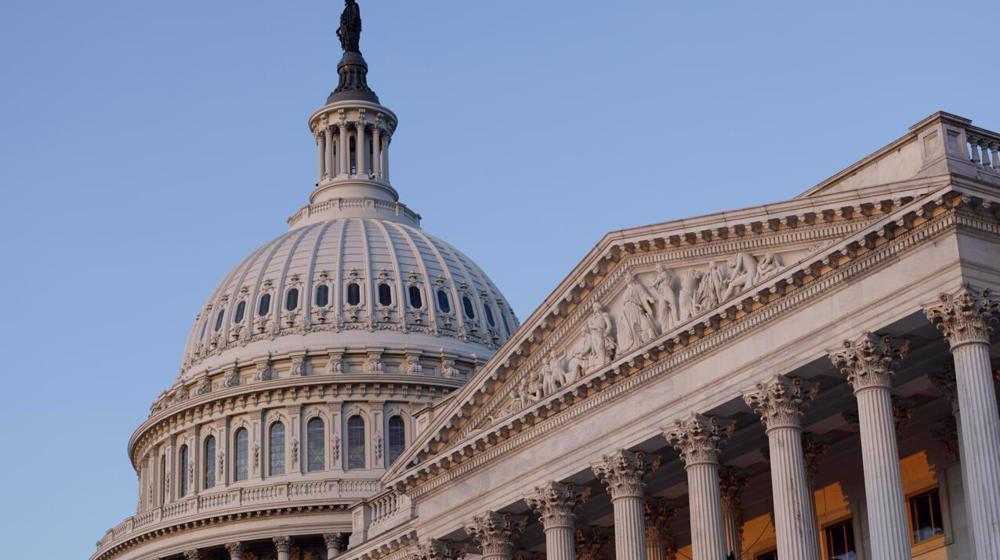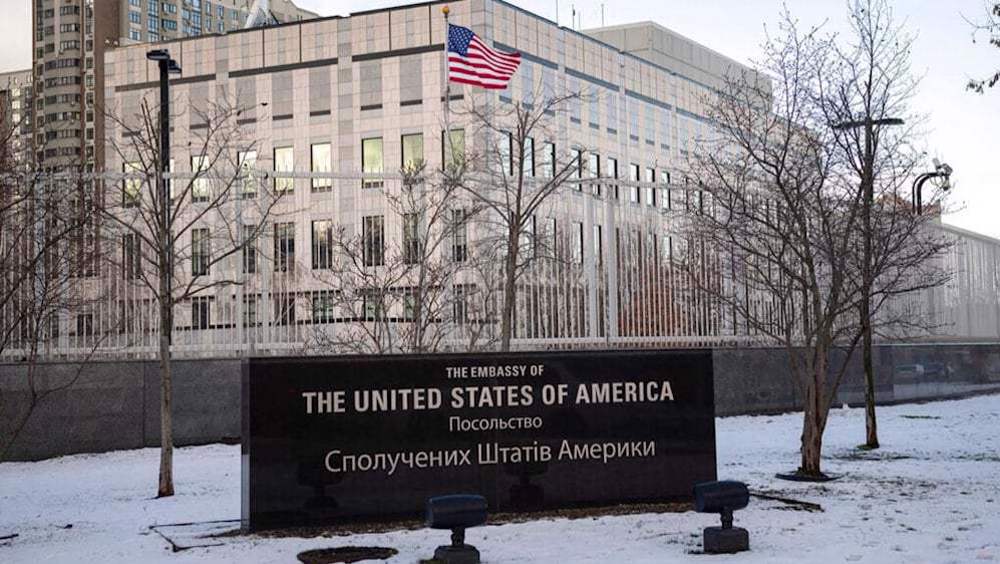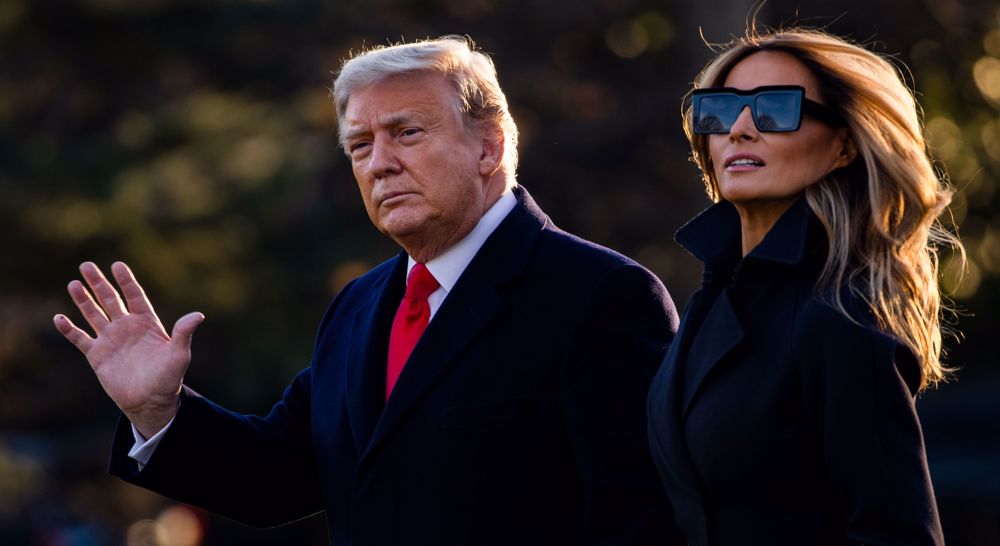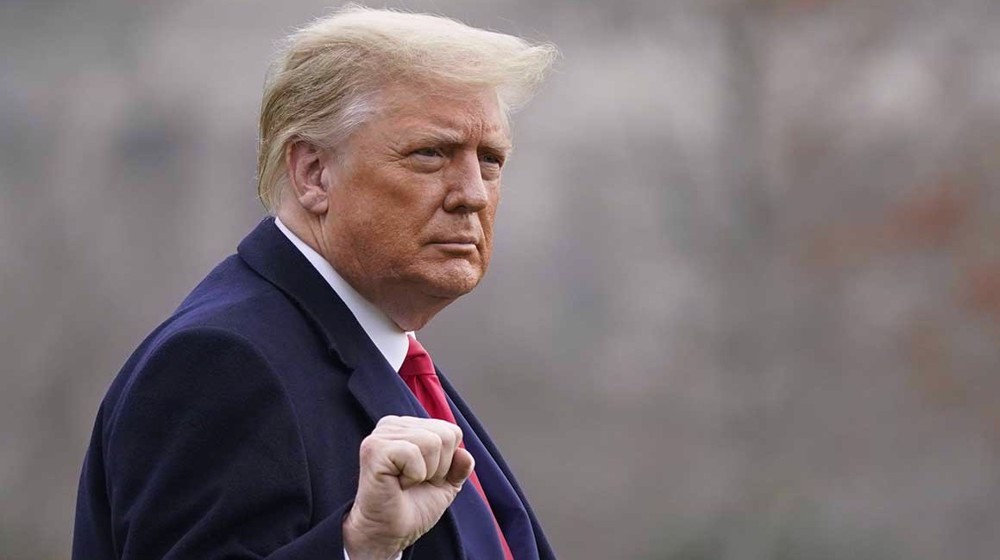US Republicans side with Democrats, override Trump’s defense veto
The US House of Representatives has rejected Donald Trump’s veto of a defense bill, dealing a blow to the president as it set the stage for the Senate to deliver the first veto override of his presidency.
The Democratic-controlled House voted 322 to 87 to override Trump's veto of the $740.5 billion bill, with 109 members of the US president's party siding with Democrats.
The bill’s fate is now in the hands of the Republican-led Senate, where it will also have to gain two-thirds support to override the president's veto. A final vote is expected this week.
The National Defense Authorization Act (NDAA), which includes funding for military projects and a pay rise for troops, was passed this month by both chambers of Congress. The House voted 335 to 78 and the Senate voted 84 to 13.
But the NDAA was vetoed by Trump because he wanted it to overturn liability protections for social media companies unrelated to national security.
The NDAA also tried to prevent Trump from withdrawing troops from Afghanistan and Iraq.
Trump also opposed a a Democrat provision that would strip several US military bases of the names of generals who fought for the secessionist, pro-slavery South in the 1861-65 Civil War.
House Speaker Nancy Pelosi welcomed what she described as “an overwhelming bipartisan” vote to override Trump’s veto and predicted the legislation would become law despite the president’s “dangerous sabotage efforts.”
“The president must end his eleventh-hour campaign of chaos and stop using his final moments in office to obstruct bipartisan and bicameral action to protect our military and defend our security,” Pelosi said in a statement.
House Majority Leader Democrat Steny Hoyer told reporters that Trump’s veto had been “stupid” and “small-minded.”
Representative Mac Thornberry, the top Republican on the House Armed Services Committee, urged Republicans ahead of the vote not to side with the president.
House approves $2,000 coronavirus aid checks
The Democratic-led House of Representatives voted 275-134 to meet Trump’s demand for $2,000 COVID-19 relief checks on Monday.
The 275 votes for passage meant the stimulus proposal narrowly exceeded the two-thirds of votes cast needed.
The motion is likely to meet with resistance from Republicans in the Senate as Republican lawmakers have complained that the higher amount would add hundreds of billions of dollars to the latest relief bill.
Trump finally signed the $2.3 trillion package into law on Sunday after holding it up with a veiled veto threat. But he continued demanding $2,000 checks.
The $2.3 trillion includes $1.4 trillion in spending to fund government agencies and $892 billion in COVID-19 relief.
Trump last week threatened to block the massive pandemic aid and spending package if Congress did not boost stimulus payments from $600 to $2,000 and cut other spending. He backed down from his demands on Sunday as a possible government shutdown loomed.
Democratic lawmakers have long wanted $2,000 relief checks and used the rare point of agreement with Trump to advance the proposal.
House Speaker Democrat Nancy Pelosi said: “Republicans have a choice, vote for this legislation, or vote to deny the American people the bigger paychecks that they need.”
The Senate is due to convene on Tuesday, and Senate Democratic Leader Chuck Schumer said he would then seek passage of the higher stimulus checks bill in the chamber, where Republicans have the majority.
The coronavirus pandemic has killed nearly 330,000 people in the United States and led to widespread economic hardship, with millions of American families relying on unemployment benefits and COVID-19 relief funds.
The pandemic turned to the biggest headache for Trump, who lost November’s election to Democratic challenger Joe Biden and has yet to concede defeat.
The US Treasury Department is anticipating sending the first wave of $600 stimulus checks to US individuals and households as early as this week, as previously planned, a senior Treasury official said on Monday.
Asked at the end of an event in Wilmington, Delaware, whether Biden supported expanding the coronavirus payments to $2,000, the US President-elect replied: “Yes.”
VIDEO | Former FBI agent criticizes US Congress for 'outright corruption'
IRGC chief urges Muslim countries to cut aid routes to Israel
'New chapter in cooperation': Iran, Venezuela sign new MoUs
Jordan sentences former lawmaker for supporting Palestinian resistance
Basij volunteer forces hold massive drills in southwestern Iran
Israeli war criminals 'not welcome', US city says after ICC ruling
US vetoing of Gaza ceasefire resolution ‘disgraceful’: Iran’s UN envoy
VIDEO | IAEA adopts anti-Iran resolution tabled by E3














 This makes it easy to access the Press TV website
This makes it easy to access the Press TV website